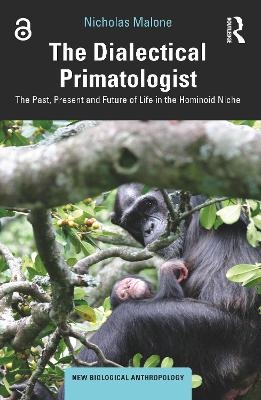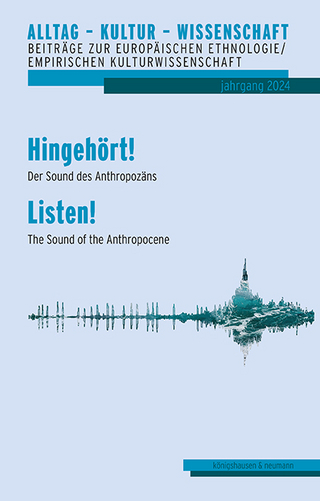
The Dialectical Primatologist
Routledge (Verlag)
978-0-367-21132-5 (ISBN)
The Dialectical Primatologist identifies the essential parameters vital for the continued coexistence of hominoids (apes and humans), synthesising primate research and conservation in order to develop culturally compelling conservation strategies required for the facilitation of hominoid coexistence.
As unsustainable human activities threaten many primate species with extinction, effective conservation strategies for endangered primates will depend upon our understanding of behavioural response to human-modified habitats. This is especially true for the apes, who are arguably our most powerful connection to the natural world. Recognising the inseparability of the natural and the social, the dialectical approach in this book highlights the heterogeneity and complexity of ecological relationships. Malone stresses that ape conservation requires a synthesis of nature and culture that recognises their inseparability in ecological relationships that are both biophysically and socially formed, and seeks to identify the pathways that lead to either hominoid coexistence or, alternatively, extinction.
This book will be of keen interest to academics in biological anthropology, primatology, environmental anthropology, conservation and human–animal studies.
The Open Access version of this book, available at http://www.taylorfrancis.com, has been made available under a Creative Commons Attribution-Non Commercial-No Derivatives (CC-BY-NC-ND) 4.0 license.
Nicholas Malone is a senior lecturer in Anthropology at the University of Auckland, New Zealand. Dr Malone is an anthropologist with a broad interest in the social and ecological lives of primates, especially those of apes and humans. Specifically, he seeks to understand how the observed patterns of variability within and between taxa are simultaneously shaped by, and act as shaping factors of, evolutionary processes. Additionally, he strives to contribute to primate conservation through a commitment to engaging with local and extra-local efforts. Finally, he wishes to situate the study of primates within the broader contexts of anthropology, history and research ethics. His writing is informed by research experiences in Indonesia and the Democratic Republic of the Congo.
1. Introduction: The Dialectical Primatologist; 2. From the Miocene to the Margins: Overview of the Superfamily Hominoidea; 3. Emergence: Theorising Ape Sociality; 4. Waves of Change: Insights from Java, Indonesia; 5. Betwixt and Between: Apes in (and on) the Verge; 6. Conclusion: The Future of Life in the Hominoid Niche; 7. Epilogue
| Erscheinungsdatum | 26.10.2021 |
|---|---|
| Reihe/Serie | New Biological Anthropology |
| Mitarbeit |
Herausgeber (Serie): Agustín Fuentes |
| Zusatzinfo | 5 Tables, black and white; 2 Line drawings, black and white; 27 Halftones, black and white; 29 Illustrations, black and white |
| Verlagsort | London |
| Sprache | englisch |
| Maße | 156 x 234 mm |
| Gewicht | 312 g |
| Themenwelt | Sozialwissenschaften ► Ethnologie |
| Sozialwissenschaften ► Soziologie | |
| Weitere Fachgebiete ► Land- / Forstwirtschaft / Fischerei | |
| ISBN-10 | 0-367-21132-7 / 0367211327 |
| ISBN-13 | 978-0-367-21132-5 / 9780367211325 |
| Zustand | Neuware |
| Haben Sie eine Frage zum Produkt? |
aus dem Bereich


